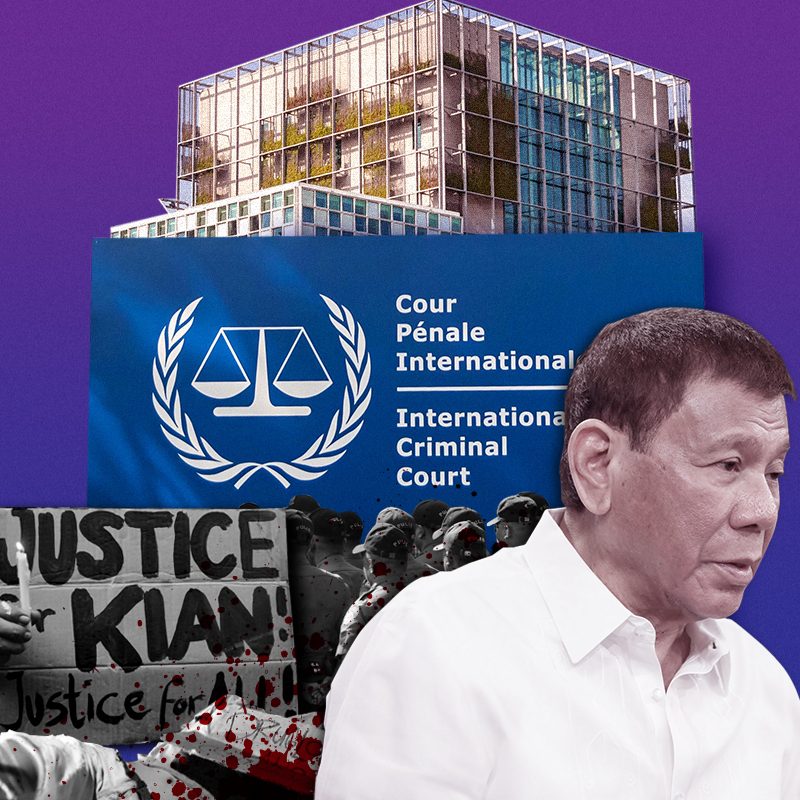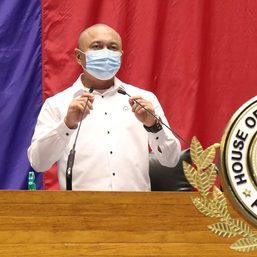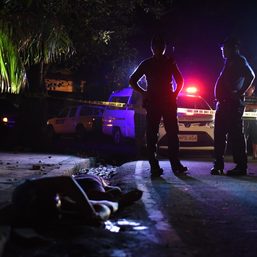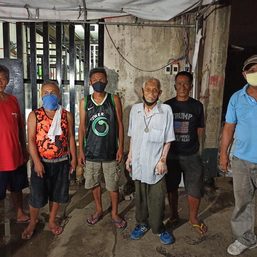SUMMARY
This is AI generated summarization, which may have errors. For context, always refer to the full article.

The Philippines is still obliged to cooperate in criminal proceedings of the International Criminal Court even if it has withdrawn from the ICC, the Supreme Court said.
“Even if it has deposited the instrument of withdrawal, it shall not be discharged from any criminal proceedings. Whatever process was already initiated before the International Criminal Court obliges the state party to cooperate,” the Supreme Court said in a 15-0 decision announced last March, a full copy of which was released only on Wednesday, July 21.
In that same decision, the High Court junked petitions questioning the validity of President Rodrigo Duterte’s decision to withdraw the Philippines from the ICC, as the issue has become moot and academic.
The ICC’s retired prosecutor Fatou Bensouda has already asked the pre-trial chamber to investigate killings in Duterte’s drug war, and killings by the so-called Davao Death Squad (DDS) from 2011, the year the Philippines joined the ICC.
Presidential Spokesperson Harry Roque had earlier said that Duterte “will never cooperate” in any ICC proceeding.
Article 27 of the Rome Statute says all proceedings done prior to withdrawal remain valid even after withdrawal. Duterte withdrew from the ICC in March 2018, a month after Bensouda opened the preliminary examination.
Citing Article 27, the Supreme Court said, “Withdrawing from the Rome Statute does not discharge a state party from the obligations it has incurred as a member.”
“We think this is not obiter but part of the key holdings of the Court. And we agree with this conclusion by the Supreme Court,” said international law professor Romel Bagares, lead counsel for the Philippine Coalition for the ICC (PCICC) which is one of the two petitioner groups in this case.
Obiter means a reflection or an opinion made by a judge or justice that does not set a precedent, or is not necessarily legally binding.
In the same decision, the Supreme Court junked the petitions filed by the PCICC and opposition senators based on procedural grounds, one of which is mootness because for the Court, the Rome Statute allows for a withdrawal and the United Nations had already received the notification of withdrawal even before the petitions were filed.
“The petitions here raise interesting legal questions. However, the factual backdrop of these consolidated cases renders inopportune a ruling on the issues presented to this Court,” said the decision penned by Associate Justice Marvic Leonen.
There’s the International Humanitarian Law
The petitions were based on the premise that killings in the Philippines, particularly the drug war, need the ICC to exact accountability.
“Neither do we agree with petitioners’ implied statements that without the treaty, the judiciary will not be able to fulfill its mandate to protect human rights,” said the Supreme Court, pointing to the International Humanitarian Law (IHL) which the Philippine enacted in 2009. Philippines joined the ICC in 2011.
The Supreme Court said the IHL is even stronger than the Rome Statute – the treaty that created the ICC – because Philippine jurisprudence has recognized command responsibility as criminal complicity.
“Republic Act No. 9851 [IHL] holds superiors liable as principals for crimes committed by subordinates under their effective command and control. This provides for command responsibility as a form of criminal complicity that jurisprudence has recognized,” said the Supreme Court.
Bensouda has accused Philippine officials of planning and ordering extrajudicial killings. While she did not expressly accuse Duterte, she said these killings are “apparent state policy” under Duterte. There are debates on whether killings can be directly linked to the President.
“All told, the more restrictive Rome Statute may have even weakened the substantive protections already previously afforded by RA 9851,” said the Supreme Court.
Human rights advocates argue that domestic systems and laws may not be sufficient to hold the Duterte government accountable, thus the necessity of turning to the ICC.
“This point by the Court requires further study, precisely because the Court itself recognized the principle of complementarity as a feature of the Rome Statute; that is, where there is inability or unwillingness on the part of a state to discharge its obligations as a party to the ICC to investigate crimes,” said Bagares.
The ICC’s pre-trial chamber will be looking into the unwillingness and inability of the Philippine system to investigate these killings on its own, and whether it serves the interest of justice.
Serving the interest of justice is linked to government cooperation as in the case of Afghanistan, where the ICC’s pre-trial chamber said their government’s non-cooperation doomed the investigation to fail and therefore would not serve the interests of justice. The ICC overturned that on appeal, leading to the ongoing investigation into Afghanistan.
A decision on whether the ICC will open an investigation into the Philippines is expected roughly within three months from May 24, or around the end of August.

‘Narrow scope’
In also junking the petitions questioning the validity of the withdrawal from the ICC, the Supreme Court said neither the opposition senators nor the PCICC had legal standing.
For opposition senators, the Supreme Court said the Senate did not even pass a resolution expressing its position that its concurrence was needed to withdraw from a treaty that also needed its concurrence for ratification.
“Thus the Senate’s inaction itself precludes a source from which petitioners senators can claim a right to require Senate concurrence to withdrawing from the Rome Statute,” said the Supreme Court.
It was Senator Manny Pacquiao who had blocked that resolution from being passed. At the time, Pacquiao, was a staunch ally of Duterte but he has now turned into the President’s foe as the PDP-Laban party mates fight for supremacy within the ruling party as the 2022 elections near.
In the case of the PCICC, the Supreme Court said the group could not speak for its members who are human rights advocates because there is no resolution from the members that authorized the leadership to speak on their behalf.
There is no transcendental importance either, said the Supreme Court.
“None of the exceptional conditions warranting the exercise of this Court’s jurisdiction is present here. This case does not involve funds or assets,” said the Court.
Are the killings not exceptional conditions? Bagares said the resolution was narrow and focused only on whether Duterte complied with the protocol for withdrawal, which he did, according to the Supreme Court.
“The Court placed a narrowed scope for resolution: the constitutional and legal avenues where the President may exercise his foreign policy prerogatives to withdraw from a treaty, and the procedures for withdrawal from the International Criminal Court as outlined within the Rome Statute itself, and whether the President complied with these procedures,” said Bagares.
In an earlier press conference, Leonen said the petitions were not about killings or the drug war.
“The Court tries to avoid getting into political issues such as for example the drug war in general. We would rather attend to specific facts, raising specific issues in the proper way, through the proper petition the right way, the right time, and the right place,” Leonen said during a rare press conference on June 11.
The petitions challenging the constitutionality of the drug war are still pending after four years.

– Rappler.com
Add a comment
How does this make you feel?
![[The Slingshot] Alden Delvo’s birthday](https://www.rappler.com/tachyon/2024/04/tl-alden-delvo-birthday.jpg?resize=257%2C257&crop=263px%2C0px%2C720px%2C720px)









There are no comments yet. Add your comment to start the conversation.